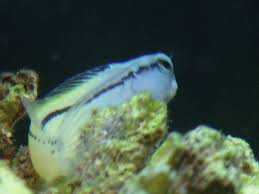
In Chinese culture, dragons are not merely mythical creatures but are revered as powerful, majestic beings with a deep connection to the natural world, the divine, and the human realm. These legendary creatures are seen as symbols of strength, wisdom, and good fortune. They are also imbued with special powers that shape their roles in myths, traditions, and rituals. As a central figure in Chinese mythology, dragons often possess extraordinary abilities, from controlling natural elements to influencing human fate and governing the cosmos. The importance of dragons in Chinese culture is vast, with stories of their unique powers deeply ingrained in the culture’s beliefs, practices, and folklore. This article explores the fascinating role of dragons and their special powers in Chinese mythology.
The Origins of the Dragon in Chinese Mythology
Before delving into the special powers of dragons in Chinese myths, it is important to first understand their origins and how they came to be so highly revered. Unlike the malevolent, fire-breathing dragons of Western cultures, Chinese dragons are typically benevolent, powerful, and associated with good luck. In ancient Chinese thought, dragons were symbols of imperial authority, strength, and cosmic harmony. Their physical characteristics—long, serpentine bodies, scales, sharp claws, and flowing manes—signify an extraordinary connection to the natural and supernatural realms.
The dragon’s association with water and rain is one of the oldest and most prominent beliefs in Chinese mythology. Dragons are often seen as water deities, with the power to command rivers, lakes, seas, and even storms. In many stories, dragons are said to dwell in the ocean, hidden from mortal eyes, and can emerge when they are called upon to control the elements or provide blessings of rain. This connection to water grants them immense power, as water is both a life-giving and destructive force. It is through this relationship with water that the dragon’s abilities become central to Chinese myths, symbolizing their control over both creation and destruction.
The Dragon’s Special Powers in Chinese Mythology
Control Over Natural Elements
One of the most significant powers attributed to dragons in Chinese mythology is their ability to control the natural elements, particularly water, fire, wind, and lightning. This ability to manipulate the forces of nature allows dragons to maintain cosmic balance, shape the world, and even intervene in human affairs.
Water Control: Water is an essential element in Chinese cosmology, representing life, prosperity, and abundance. Dragons are often depicted as guardians of water, responsible for controlling the flow of rivers, lakes, and seas. In myths, dragons have the ability to summon rain, which is essential for agriculture and the prosperity of the land. The Chinese belief in dragons as rainmakers reflects their influence over the growth of crops and the fertility of the earth.
The Dragon Kings, powerful water deities who rule over the seas, are said to have control over rain and water-related natural phenomena. According to one legend, when the Jade Emperor, the supreme ruler of the heavens, sought to regulate the rain for the people on earth, he enlisted the help of the Dragon Kings. Their powers to summon rain, storms, and floods were vital in maintaining the balance of the natural world. The ability of dragons to command water, both creating and controlling floods, symbolizes their profound influence over nature and their special ability to shift the balance of life and death.
Wind and Thunder: Dragons are also believed to have control over wind and thunder, elements associated with the sky. Their ability to manipulate these elements represents their power over both terrestrial and celestial forces. In many myths, dragons are depicted as riding the winds, creating storms and lightning with a flick of their tail or a beat of their wings. This divine ability to control the sky gives dragons a cosmic authority that extends beyond earthly concerns.
In the Journey to the West, one of China’s most famous literary works, the Dragon King’s son transforms into a powerful dragon to assist the hero, Sun Wukong, in his battle against evil. The dragon’s ability to control the weather and bring forth thunder and lightning highlights its power to manipulate both natural and supernatural forces.
Shape-shifting Abilities
Another remarkable power that Chinese dragons possess is the ability to shape-shift. In Chinese mythology, dragons can assume different forms, including those of humans, animals, or celestial beings. This shape-shifting ability symbolizes the dragon’s connection to the spiritual realm and its fluidity in transitioning between worlds. The dragon’s transformation also reflects its ability to transcend natural laws, as they can shift between realms, time periods, and even dimensions.
In the myth of Carp Transformed into Dragon, a story that symbolizes perseverance and transformation, a carp who leaps over the Dragon Gate waterfall is transformed into a dragon. This metamorphosis signifies the breaking of limitations and the achievement of greatness. It is through shape-shifting that dragons can take on forms that allow them to influence both the mortal and divine worlds.
The dragon’s shape-shifting ability also links it to deities and immortals. For example, in the tale of the Nine-Headed Dragon, the dragon is able to take the form of a human or a celestial being, displaying immense wisdom and power. This ability to transform and adapt to different forms makes the dragon a versatile and ever-present force in Chinese mythology, capable of influencing events in both the human and divine realms.
Immortality and Eternal Life
Dragons in Chinese mythology are often associated with immortality and eternal life. They are believed to possess the elixir of life, an essence that grants them longevity and the ability to transcend death. This belief is particularly significant in Taoist philosophy, which emphasizes the quest for immortality and the pursuit of spiritual enlightenment.
One of the most famous myths about a dragon’s immortality involves the Dragon Pearl, a mystical artifact that holds the power to bestow eternal life. According to the myth, the Dragon Pearl is hidden in the deep oceans, guarded by the Dragon Kings. This pearl is said to have the power to heal wounds, cure diseases, and grant immortality to those who possess it. The legend of the Dragon Pearl emphasizes the dragon’s special ability to control the forces of life and death, allowing it to transcend mortality and live forever.
In addition to the Dragon Pearl, other myths also describe dragons as possessing an inner power that enables them to live for thousands of years without aging. This immortality is often seen as a reflection of the dragon’s connection to the cosmos and the eternal cycle of creation and destruction. As powerful and timeless creatures, dragons embody the ultimate desire for eternal life, a central theme in Chinese culture and philosophy.
Divine Protection and Governance
Dragons are also seen as protectors and guardians, wielding special powers that ensure the prosperity and safety of the nation, its people, and the emperor. The dragon’s connection to power and governance is particularly significant in imperial China, where the dragon symbolized the emperor’s divine right to rule.
The Imperial Dragon, with its five claws (a symbol of imperial authority), was considered the personal emblem of the emperor, signifying his connection to heaven and his rule over the earth. It was believed that the emperor, as the Son of Heaven, was granted the dragon’s protection and special powers, ensuring the success and stability of the nation. The emperor’s dragon robe, decorated with dragons, was a representation of his celestial power and divine mandate.
The dragon was also seen as a protector of the people. In many myths, dragons are credited with protecting towns, villages, and sacred sites. They are often depicted as guardians of treasures or knowledge, using their powers to safeguard what is most important. In the myth of the Azure Dragon, one of the Four Symbols of Chinese astrology, the dragon is said to protect the eastern quadrant of the heavens and guard against evil spirits and calamities. The dragon’s protective role highlights its power to ensure peace, order, and prosperity for those under its care.
Influence on Human Fate
Finally, dragons in Chinese mythology are believed to have the ability to influence human fate. The dragon’s powers extend beyond the natural world, affecting the lives of individuals and the course of history. In particular, dragons are associated with the concept of Qi (energy or life force), which flows through all living things. By controlling Qi, dragons can influence the balance of forces in the human world, shaping events and outcomes.
One of the most notable examples of this is the Emperor’s Dream of the Dragon, a tale in which the emperor’s dreams are believed to be influenced by a dragon, predicting the fate of his reign and the future of the empire. The dragon’s role in shaping human destiny reflects its importance as a cosmic and spiritual force, capable of affecting individuals, families, and entire nations.
Conclusion: The Multifaceted Powers of the Dragon
In Chinese mythology, dragons are not simply fantastical creatures; they are embodiments of divine power, creativity, and the ability to manipulate the natural and supernatural worlds. From their control over water, wind, and fire to their shape-shifting abilities and immortality, dragons are portrayed as beings with extraordinary powers that transcend the limitations of the natural world. These powers grant dragons a central role in Chinese myths, where they are seen as creators, protectors, and influencers of human fate.
The dragon’s connection to special powers extends beyond mere fantasy; it is a symbol of the balance between creation and destruction, life and death, and order and chaos. In Chinese culture, the dragon represents not only cosmic and natural forces but also the divine protection of rulers and the connection between humanity and the heavens. Its powers are a reminder of the ancient belief that the dragon, as a force of both creation and destruction, holds the keys to shaping the future of the world.










